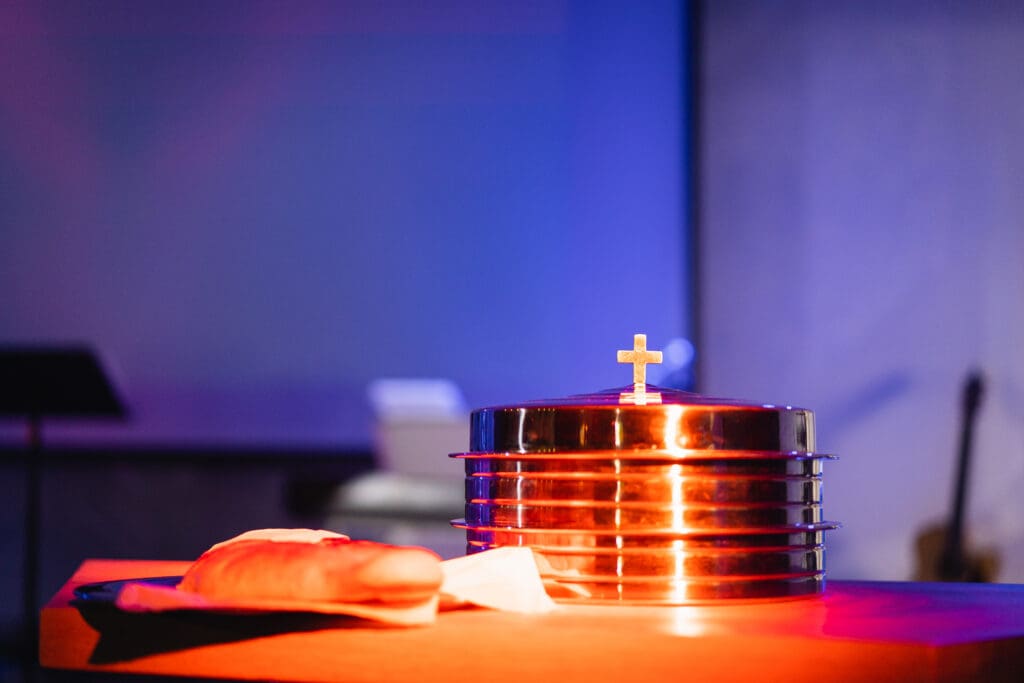Communion, or the Lord’s Supper, is a sacred practice Christians observe worldwide. It symbolizes the sacrifice of Jesus Christ and serves as a reminder of His love and grace. This article explores the significance of Communion, why we participate in it, and its importance in our spiritual lives.
The Origin of Communion
The practice of Communion traces back to the Last Supper, where Jesus shared a meal with His disciples before His crucifixion. Luke 22:19-20 recounts this moment:
“And He took bread, gave thanks and broke it, and gave it to them, saying, ‘This is My body given for you; do this in remembrance of Me.’ In the same way, after the supper, He took the cup, saying, ‘This cup is the new covenant in My blood, which is poured out for you.‘”
Symbolism of the Bread and the Cup
The Bread
The bread represents the body of Christ, broken for our sins. By partaking in the bread, we acknowledge His sacrifice and our redemption. Isaiah 53:5 affirms,
“But He was pierced for our transgressions, He was crushed for our iniquities.”
The Cup
The cup symbolizes the blood of Christ, shed for the forgiveness of sins. Drinking from the cup signifies our acceptance of the new covenant established through His sacrifice. Matthew 26:28 states,
“This is My blood of the covenant, which is poured out for many for the forgiveness of sins.“
Why We Participate in Communion
A Remembrance of Christ’s Sacrifice
Communion serves as a tangible reminder of the suffering and death Jesus endured on our behalf. 1 Corinthians 11:26 says,
“For whenever you eat this bread and drink this cup, you proclaim the Lord’s death until He comes.”
We honor His immense love and the price paid for our salvation by participating.
An Expression of Unity
Sharing in Communion unites believers as one body in Christ. It reflects our shared faith and commitment to His teachings. 1 Corinthians 10:17 notes,
“Because there is one loaf, we, who are many, are one body, for we all share the one loaf.”
A Celebration of the New Covenant
Jesus established a new covenant between God and humanity through His death and resurrection. Communion celebrates this covenant and the hope it brings. Hebrews 9:15 explains,
“For this reason Christ is the mediator of a new covenant, that those called may receive the promised eternal inheritance.”
The Importance of Self-Examination
Before participating in Communion, believers must reflect on their relationship with God and others. 1 Corinthians 11:28 advises,
“Everyone ought to examine themselves before they eat of the bread and drink from the cup.”
This introspection ensures that we approach the table sincerely and repentantly.
The Impact of Communion on Our Faith
Strengthening Our Relationship with God
Communion deepens our connection with God by reminding us of His grace and mercy. It encourages us to live in a way that honors Him daily.
Fostering Gratitude
Reflecting on Jesus’ sacrifice cultivates a spirit of thankfulness. Recognizing the depth of His love inspires us to express gratitude in our words and actions.
Encouraging Spiritual Growth
Participating in Communion motivates us to grow spiritually, seeking to understand more about God’s will and purpose for our lives.
Conclusion
Communion is a profound practice that holds deep meaning for believers. It is a time to remember Jesus’ sacrifice, celebrate the church’s unity, and renew our commitment to God. By understanding what Communion stands for, we can participate with reverence and allow its significance to transform our hearts and lives.




